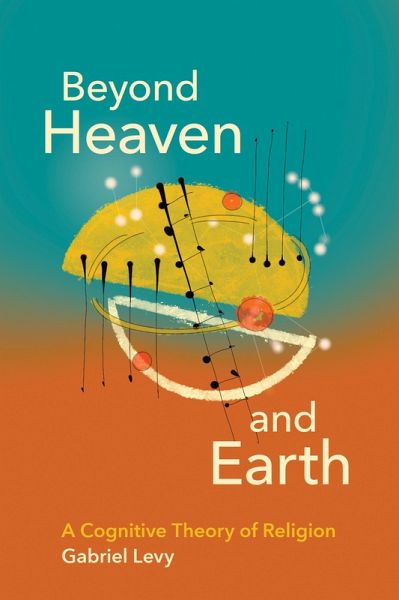
Beyond Heaven and Earth (eBook, ePUB)
A Cognitive Theory of Religion

PAYBACK Punkte
13 °P sammeln!
An approach to understanding religion that draws on both humanities and natural science but rejects approaches that employ simple monisms and radical dualisms. In Beyond Heaven and Earth, Gabriel Levy argues that collective religious narratives and beliefs are part of nature; they are the basis for the formation of the narratives and beliefs of individuals. Religion grows out of the universe, but to make sense of it we have to recognize the paradox that the universe is both mental and material (or neither). We need both humanities and natural science approaches to study religion and religious ...
An approach to understanding religion that draws on both humanities and natural science but rejects approaches that employ simple monisms and radical dualisms. In Beyond Heaven and Earth, Gabriel Levy argues that collective religious narratives and beliefs are part of nature; they are the basis for the formation of the narratives and beliefs of individuals. Religion grows out of the universe, but to make sense of it we have to recognize the paradox that the universe is both mental and material (or neither). We need both humanities and natural science approaches to study religion and religious meaning, Levy contends, but we must also recognize the limits of these approaches. First, we must make the dominant metaphysics that undergird the various disciplines of science and humanities more explicit, and second, we must reject those versions of metaphysics that maintain simple monisms and radical dualisms. Bringing Donald Davidson's philosophy-a form of pragmatism known as anomalous monism-to bear on religion, Levy offers a blueprint for one way that the humanities and natural sciences can have a mutually respectful dialogue. Levy argues that in order to understand religions we have to take their semantic content seriously. We need to rethink such basic concepts as narrative fiction, information, agency, creativity, technology, and intimacy. In the course of his argument, Levy considers the relation between two closely related semantics, fiction and religion, and outlines a new approach to information. He then applies his theory to discrete cases: ancient texts, modern media, and intimacy.
Dieser Download kann aus rechtlichen Gründen nur mit Rechnungsadresse in A, B, BG, CY, CZ, D, DK, EW, E, FIN, F, GR, HR, H, IRL, I, LT, L, LR, M, NL, PL, P, R, S, SLO, SK ausgeliefert werden.













